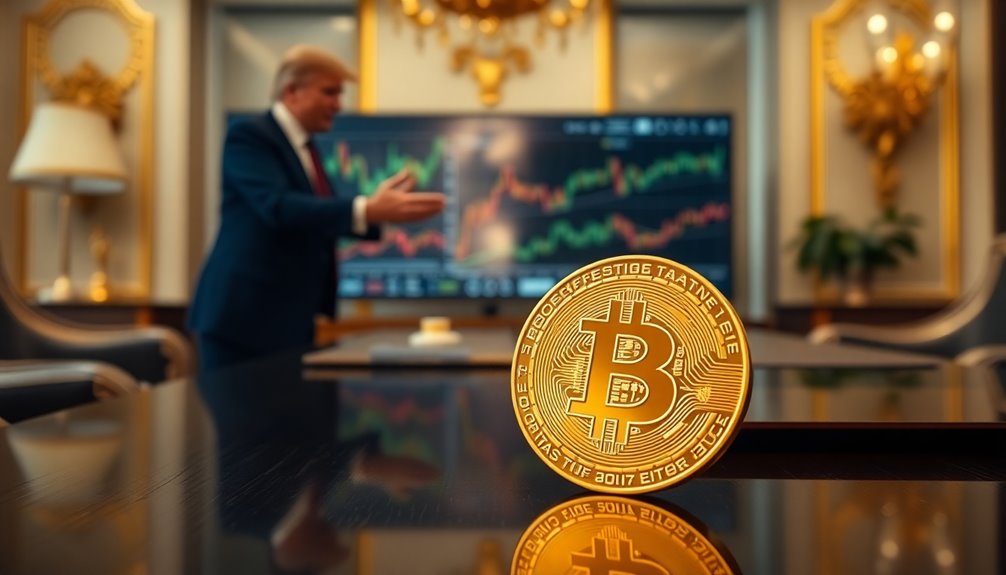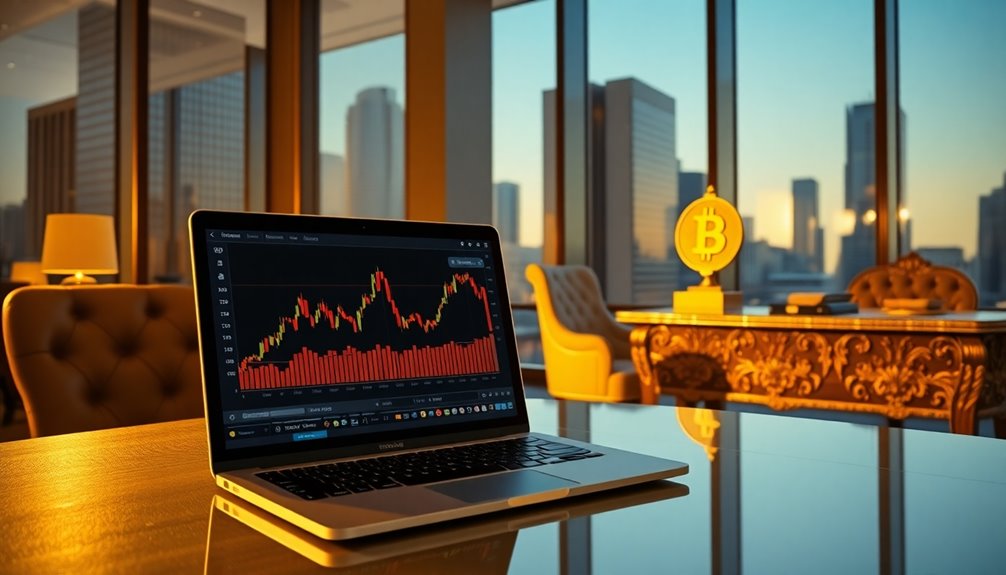You might have heard about Trump's potential plan to create a Strategic Bitcoin Reserve, which could set the stage for investors eyeing that $60K mark. The U.S. government already holds a significant amount of bitcoin, and using seized assets could change the game. While the market's been shaky, the long-term outlook appears promising. But what does this mean for the future of bitcoin and your investment strategy? Let's explore the implications further.

As the cryptocurrency landscape evolves, Donald Trump's possible move to establish a Strategic Bitcoin Reserve could reshape the U.S. government's approach to digital assets. This initiative, aimed at consolidating government-held bitcoin as a hedge against inflation and economic instability, centers on an executive order that would create a separate stockpile for cryptocurrencies other than bitcoin.
You might find it interesting that the U.S. government currently holds an estimated $17 billion worth of bitcoin, primarily seized through law enforcement actions. The best part? This reserve won't tap into taxpayer dollars; it'll utilize existing seized assets.
The purpose of creating a Strategic Bitcoin Reserve is to enhance economic stability. By holding bitcoin as a long-term strategic asset, the U.S. aims to position itself as a leader in the cryptocurrency industry. Think of bitcoin as a store of value, much like gold or oil reserves. Additionally, the reserve has been established to act as a long-term asset against economic instability and inflation.
It's important to note that the government won't sell the bitcoin in this reserve for other expenditures. Instead, the Treasury and Commerce departments will develop strategies to acquire more bitcoin without adding to the national debt.
However, the market's reaction to this announcement has been volatile. Bitcoin's price dropped significantly, despite initial optimism from investors. Still, many see this move as a long-term positive for bitcoin's value and stability. Other cryptocurrencies will also have a designated stockpile, indicating a broader commitment to digital assets.
The Trump administration has generally been supportive of the crypto industry, which might reduce regulatory pressures and boost investor confidence in the sector.
Yet, potential conflicts of interest surround this initiative. Trump's ties to crypto ventures raise eyebrows, especially considering his family's investment interests. There's also the matter of how the crypto industry supported his presidential campaign, leading to questions about favoritism.
The SEC has shown a more lenient approach toward crypto companies under Trump's administration, which could influence future regulatory decisions.
With executive orders already signed to support digital financial technology and the establishment of the crypto reserve, you should keep an eye on further developments. The White House's upcoming crypto summit, aimed at discussing future regulatory frameworks, could further influence the market.
As you navigate this evolving landscape, consider how Trump's actions might impact not just the cryptocurrency market but also your own investment strategies.










